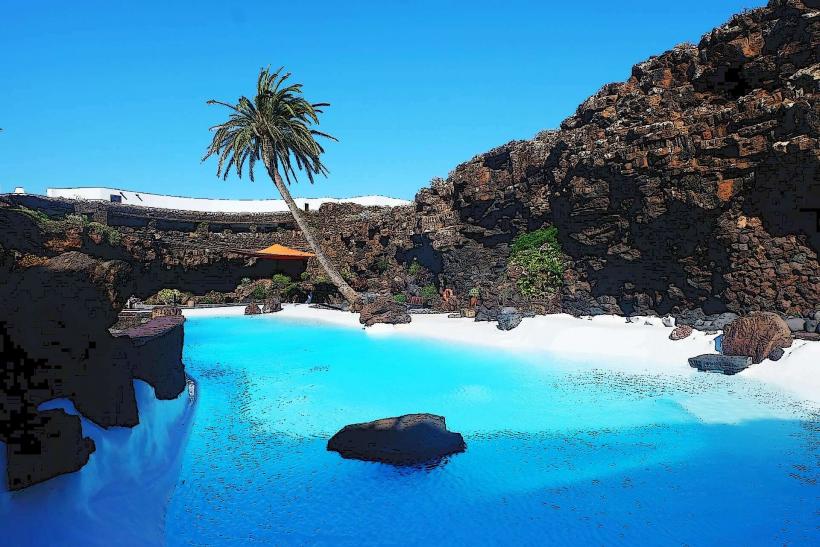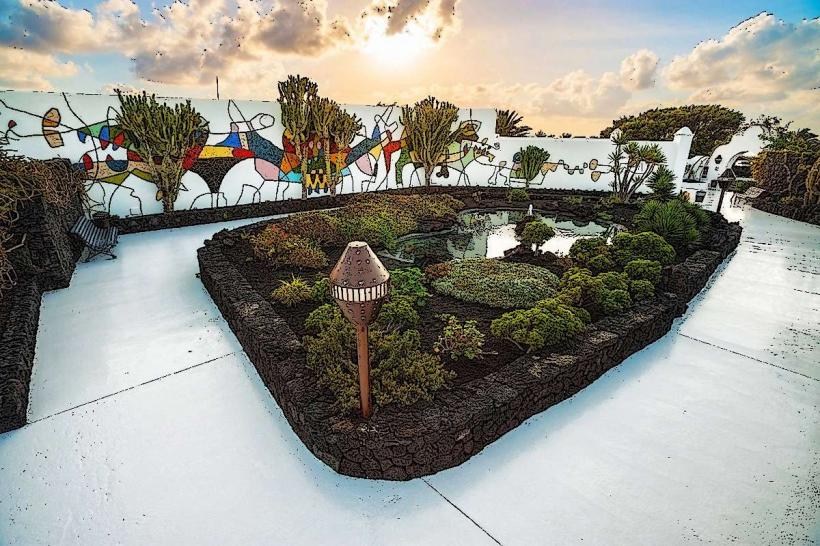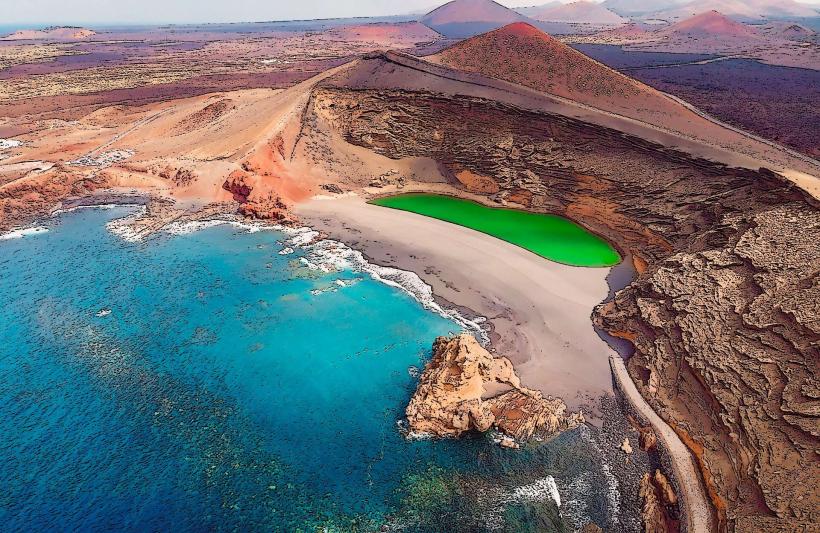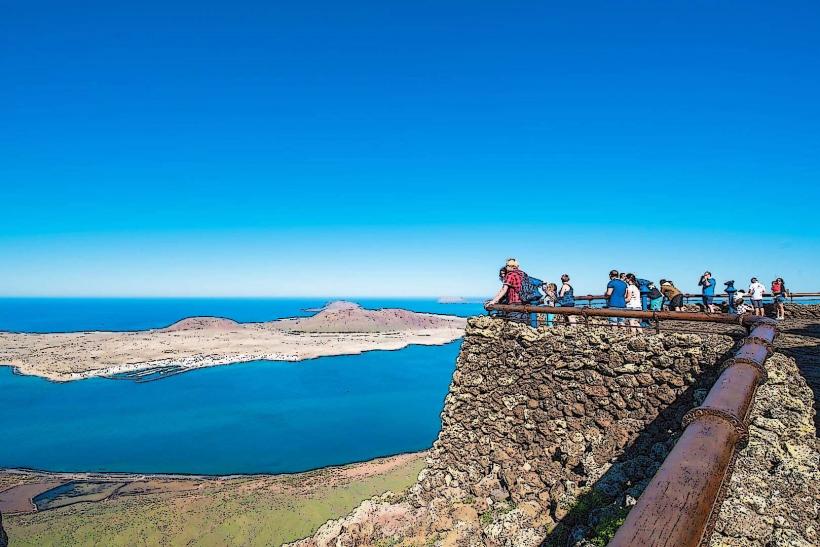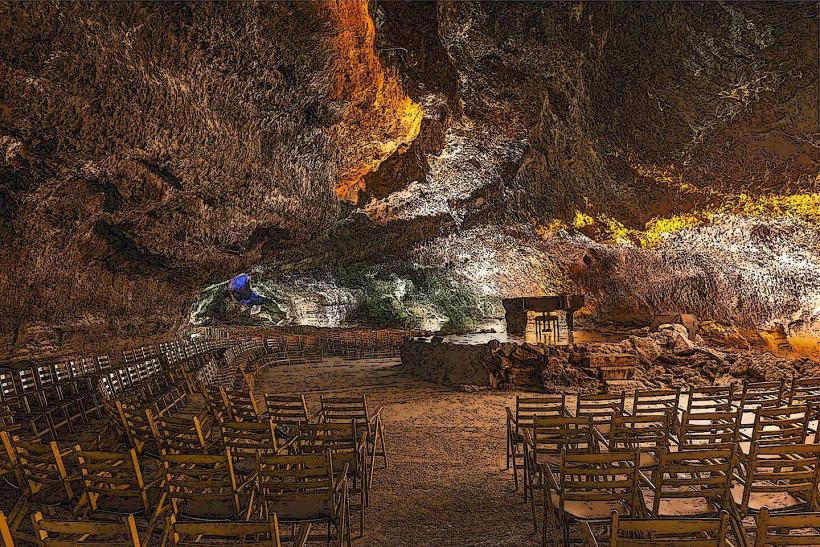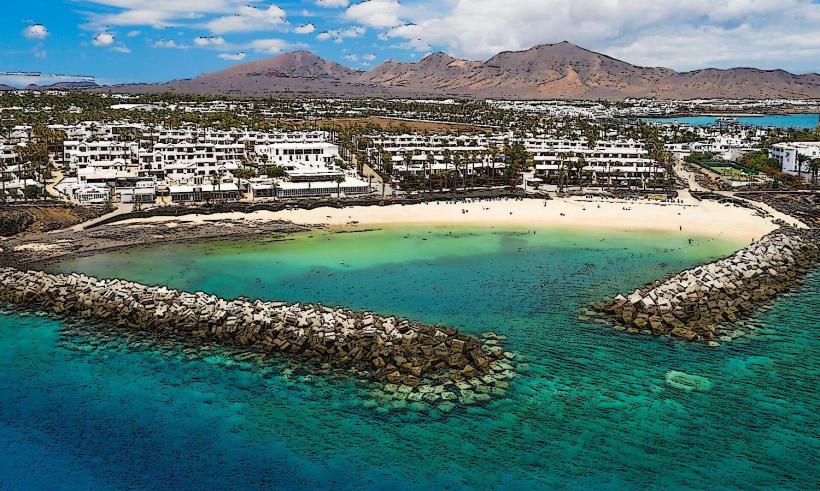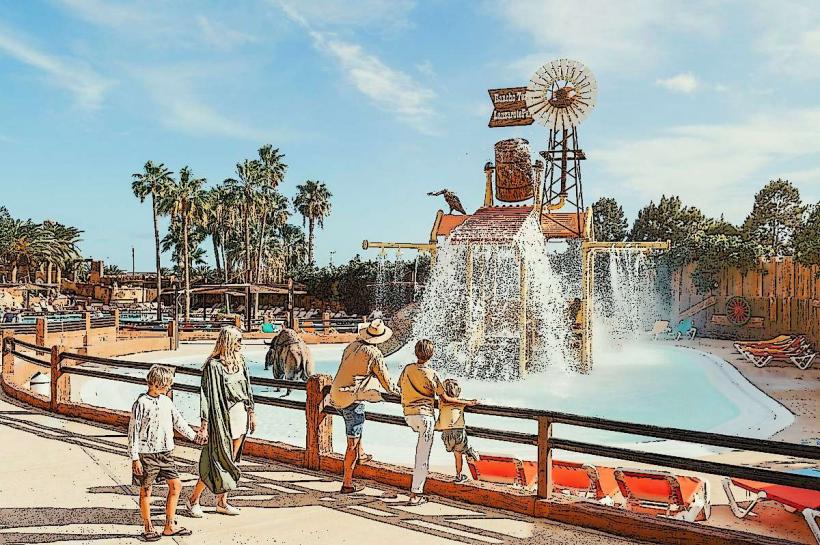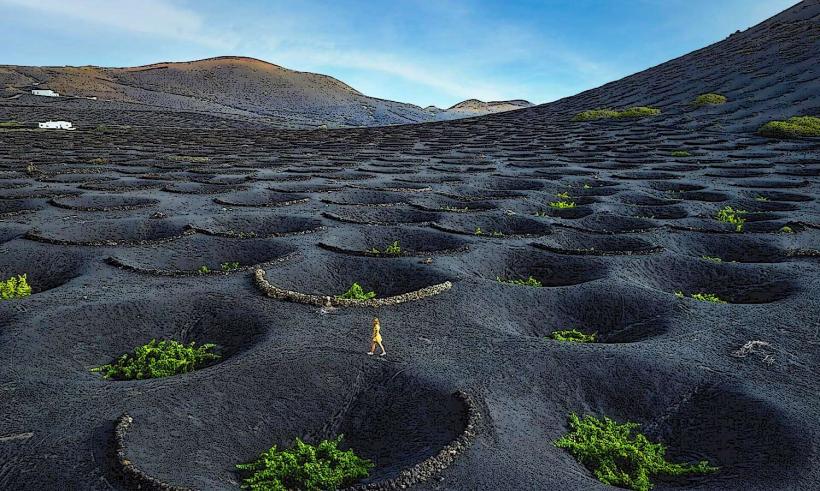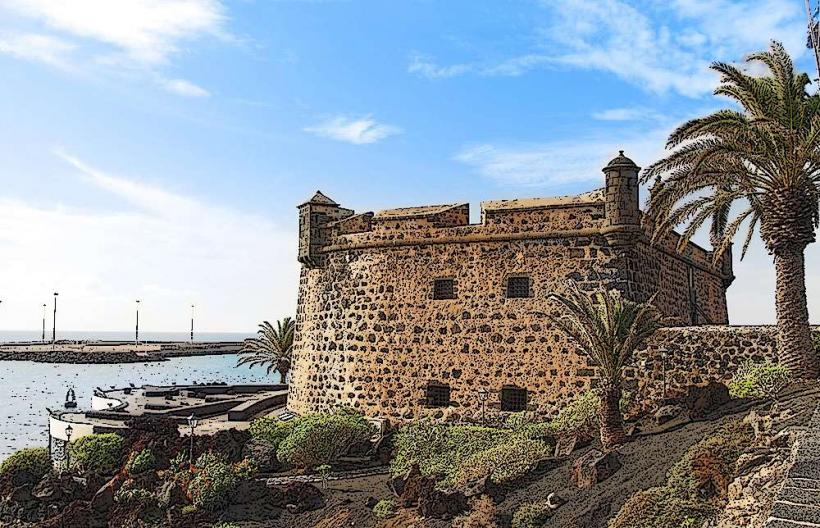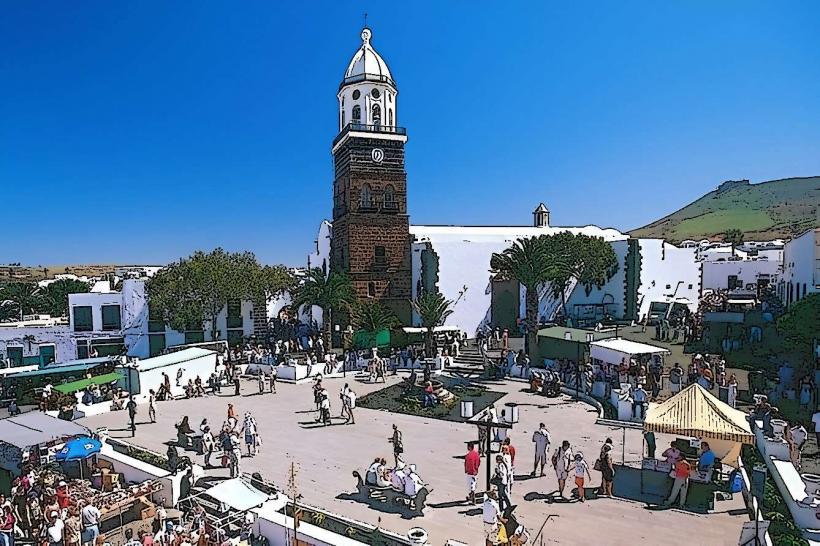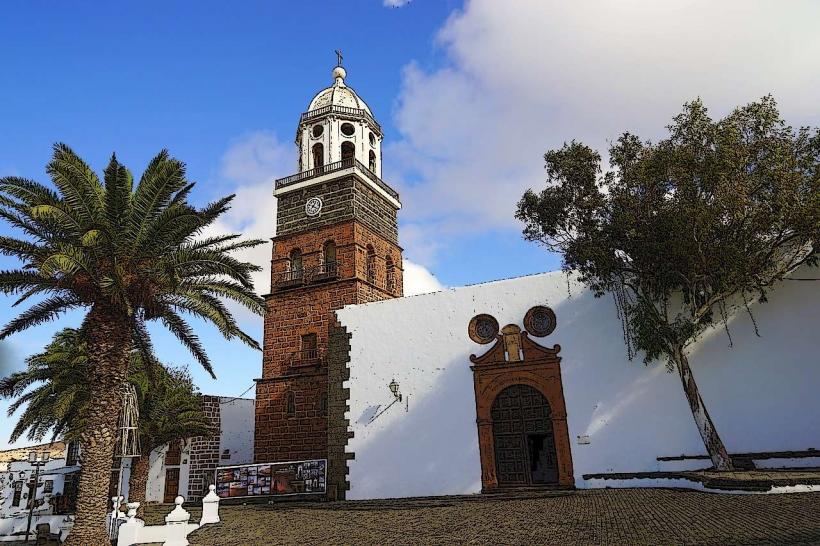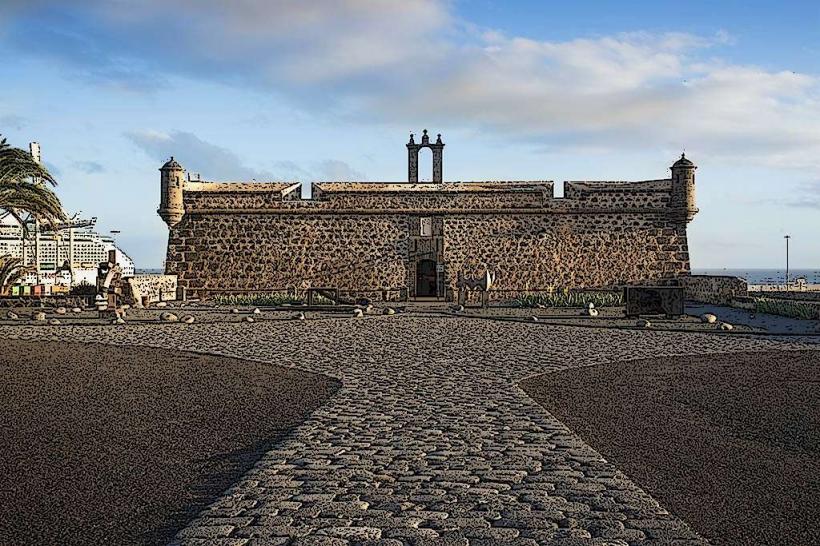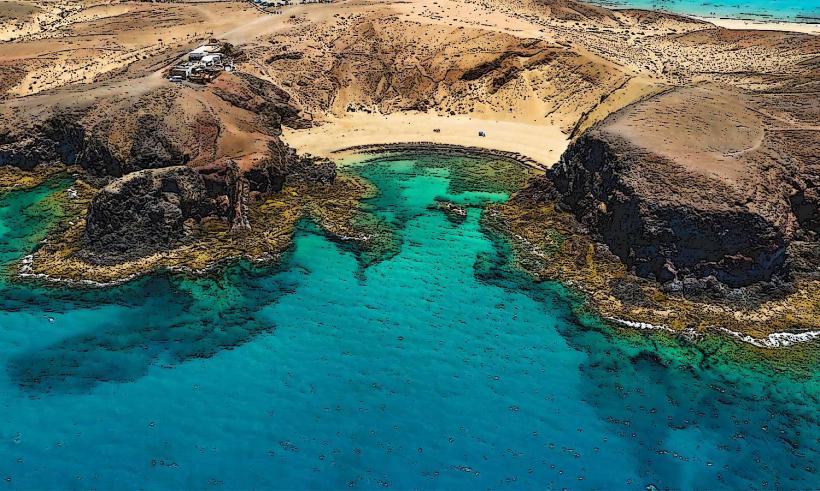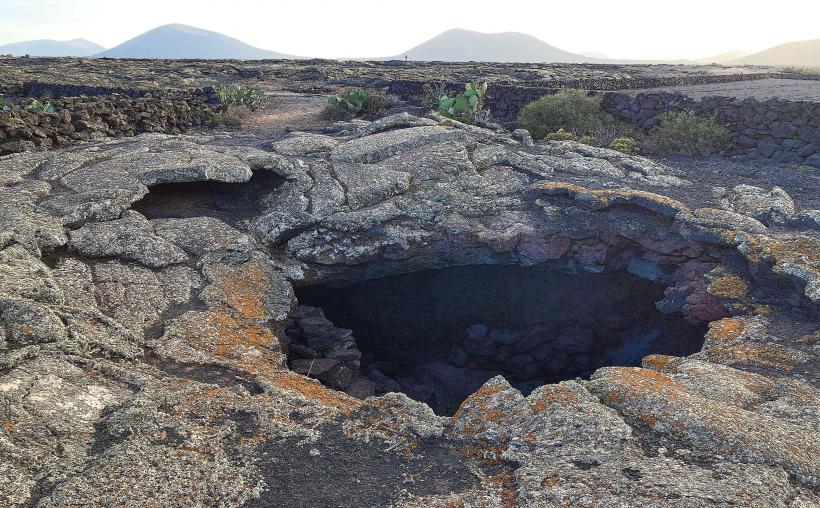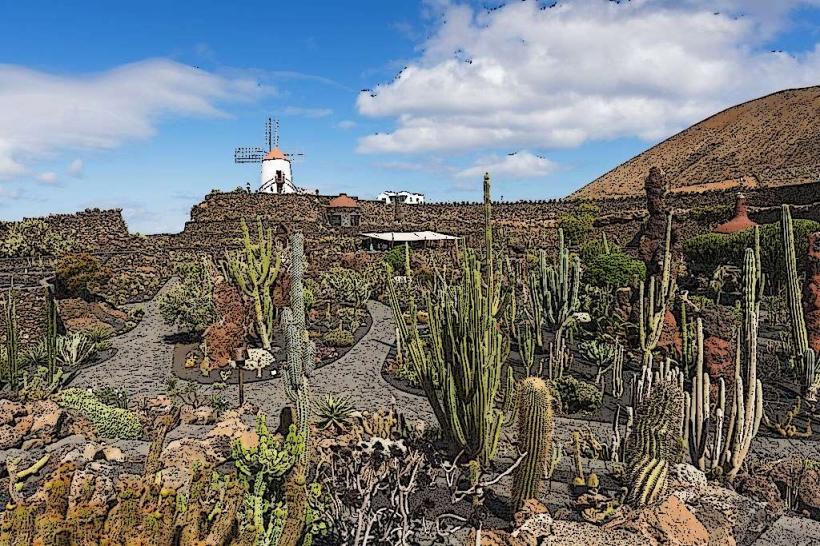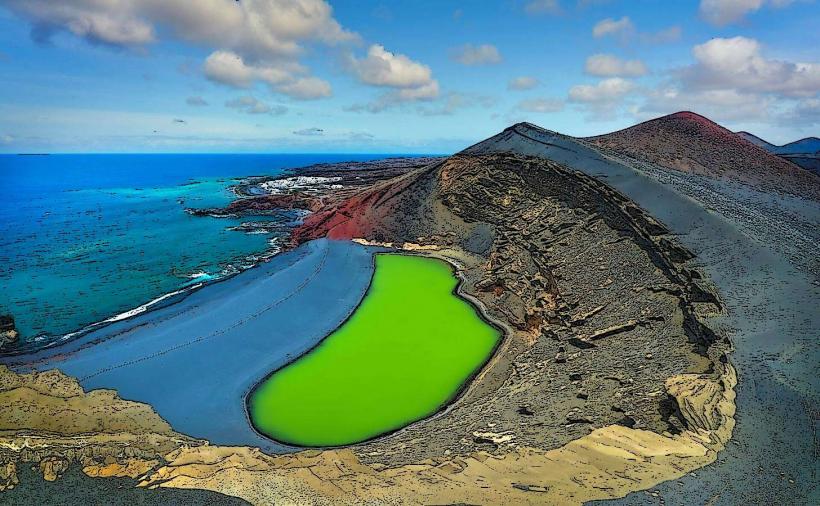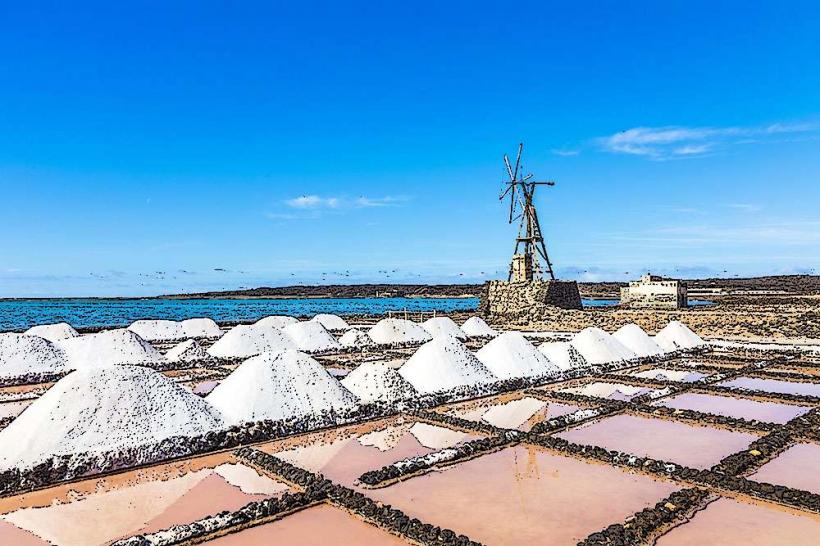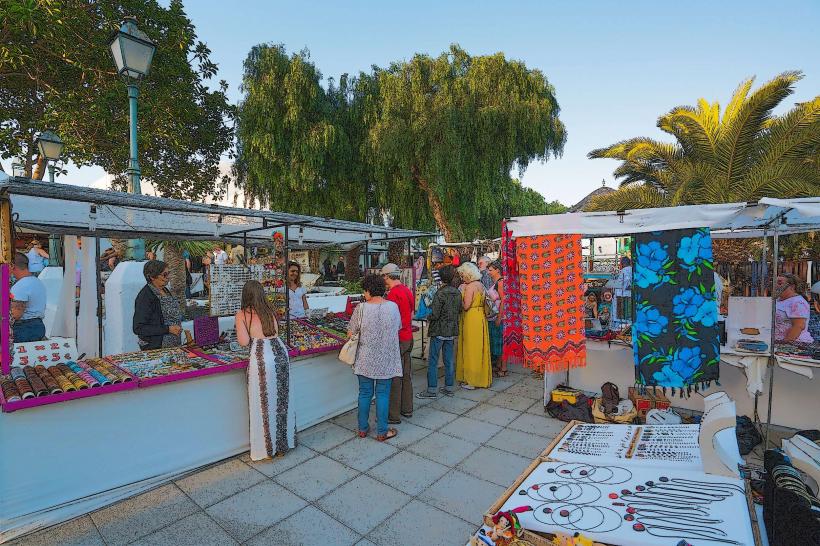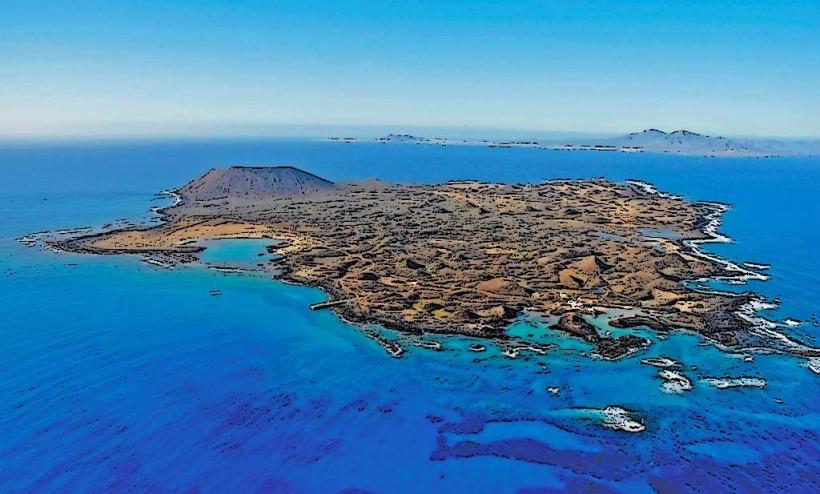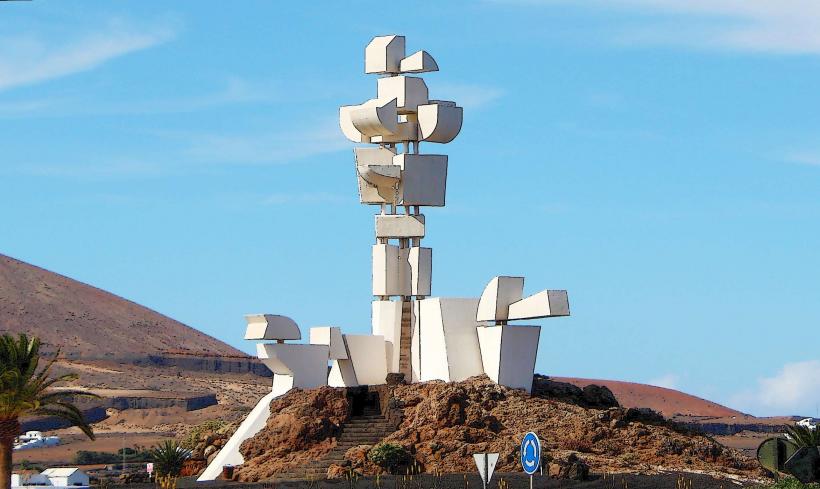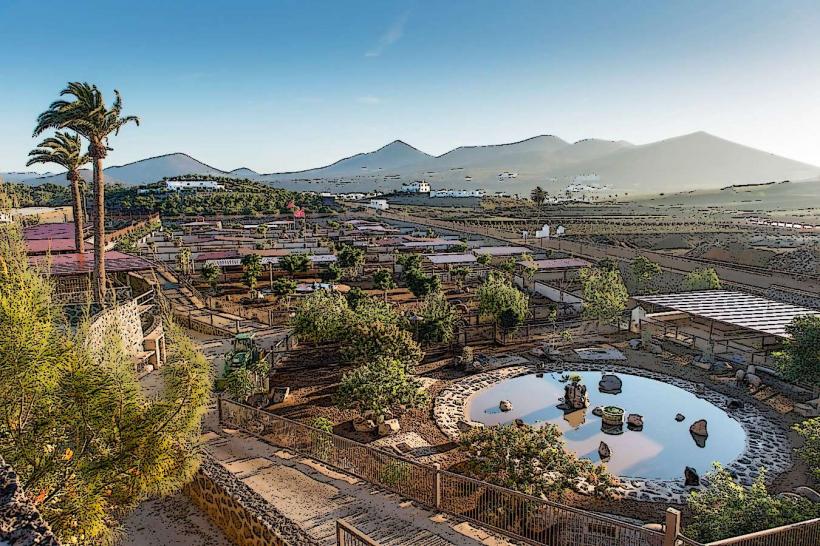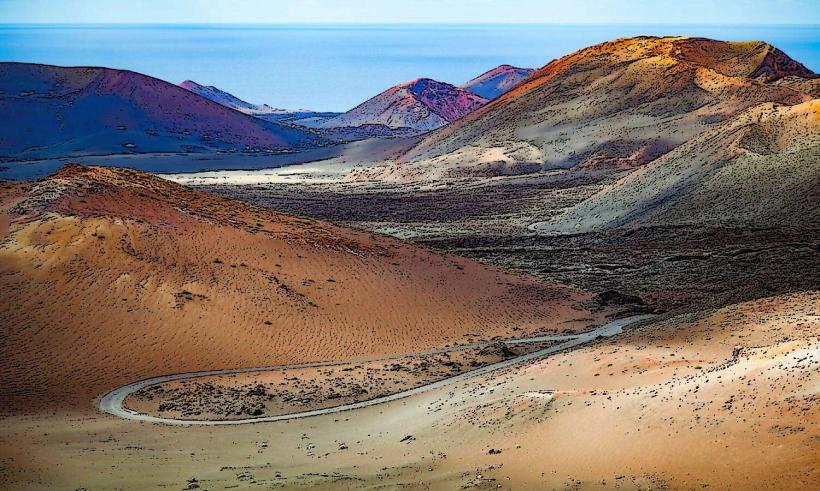Information
Landmark: Timanfaya National ParkCity: Lanzarote
Country: Canary Islands
Continent: Europe
Timanfaya National Park, Lanzarote: A Detailed Guide
Overview
Timanfaya National Park (Parque Nacional de Timanfaya) is a remarkable volcanic landscape located in the southwestern part of Lanzarote, one of Spain's Canary Islands. This unique park spans approximately 51 square kilometers (19.7 square miles) and is characterized by its dramatic lava fields, craters, and surreal terrain that resembles the surface of the Moon or Mars.
The park was established in 1974 and is recognized as a UNESCO Biosphere Reserve, emphasizing its ecological significance and commitment to conservation.
Geological and Historical Significance
Timanfaya's landscape was shaped by a series of volcanic eruptions between 1730 and 1736, with additional eruptions occurring in 1824. These eruptions buried around 11 villages and drastically transformed the region. The area now showcases over 100 volcanic cones, creating a barren yet strikingly beautiful environment.
- Volcanic Activity:
Although the volcanoes are dormant, geothermal activity remains evident beneath the surface. Temperatures a few meters underground can reach between 100°C and 600°C (212°F–1,112°F), demonstrated by park rangers performing geothermal experiments such as igniting straw or creating steam geysers.
Flora and Fauna
Despite its arid and hostile appearance, Timanfaya supports a surprising diversity of life:
- Flora: Sparse vegetation has adapted to the volcanic conditions, including lichens, succulents, and hardy shrubs.
- Fauna: The park is home to birds such as the houbara bustard and Berthelot's pipit, as well as reptiles like the Canary Island wall gecko. Insects play a crucial role in the ecosystem, including pollinators and scavengers.
Visitor Experience
Timanfaya is a popular tourist destination with well-managed facilities and activities. Here are the key attractions and experiences:
1. Montañas del Fuego (Mountains of Fire)
- This area serves as the park’s main hub. Visitors can explore dramatic volcanic formations and witness geothermal demonstrations performed by park staff.
2. El Diablo Restaurant
- Designed by Lanzarote’s renowned architect César Manrique, this unique restaurant uses geothermal heat to cook food. The grill is placed over a natural volcanic vent, offering a distinctive dining experience.
3. Ruta de los Volcanes (Volcano Route)
- A 14-kilometer guided coach tour showcases the most impressive volcanic features, including craters, lava flows, and caves. Private vehicles are not allowed to preserve the environment.
4. Hiking Trails
- While access is restricted to protect the delicate ecosystem, guided walking tours offer a more immersive experience. The Tremesana Route is particularly popular, providing insights into the geology and ecology of the park.
5. Camel Rides
- Near the park's entrance, visitors can ride camels across the volcanic slopes, a fun and unique way to experience the landscape.
Practical Information
Opening Hours:
Daily from 9:00 AM to 5:00 PM.
Entrance Fees:
Approximately €12 per adult, with discounts for children and group bookings.
Transportation:
Public transport options are limited, so most visitors arrive by car or on organized tours.
Tips for Visitors:
- Wear comfortable clothing and sturdy shoes.
- Bring sunscreen, sunglasses, and water, as the park can get very hot.
- Book guided tours in advance during peak tourist seasons.
Conservation and Sustainability
Timanfaya National Park exemplifies Lanzarote’s commitment to sustainable tourism. Measures include:
- Restricting visitor access to sensitive areas.
- Promoting renewable energy and environmentally friendly practices.
- Educating visitors about the importance of preserving volcanic ecosystems.
Timanfaya National Park is a must-visit destination for anyone intrigued by natural wonders and volcanic landscapes. Its combination of geological marvels, unique experiences, and conservation efforts makes it a standout attraction on Lanzarote.

